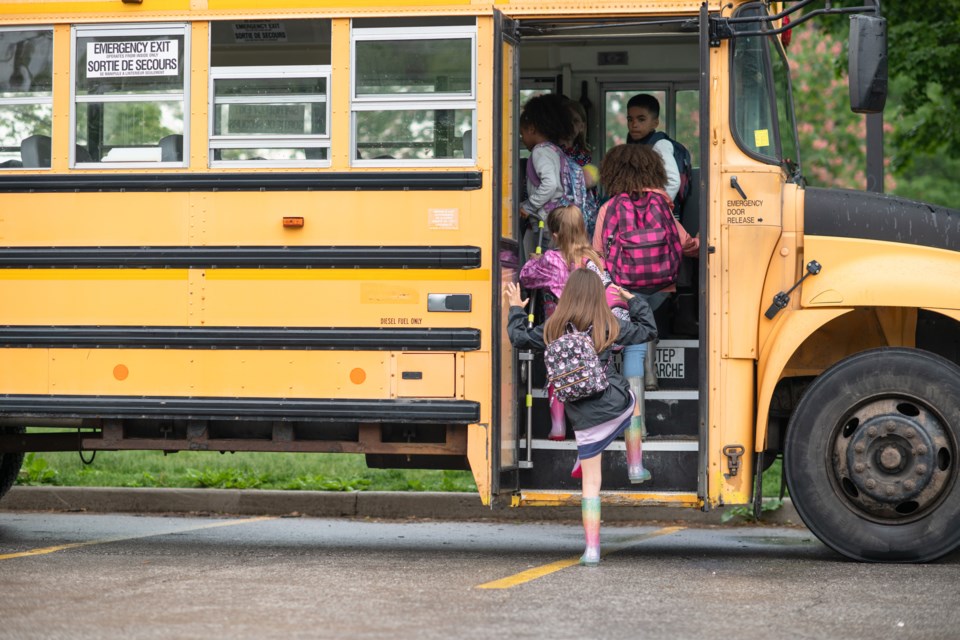Moose Jaw’s Members of the Legislative Assembly (MLAs), Greg Lawrence and Tim McLeod, supplied a joint statement rebutting claims from the Saskatchewan Teachers’ Federation (STF) that the province’s 2022 budget cuts education funding.
(The full statement from the STF can be read here.)
The Saskatchewan School Boards Association (SSBA) has also complained. Their statement can be read here.
The STF released their statement on March 23. The opening paragraph reads:
“The Saskatchewan Teachers’ Federation is disappointed that the Government of Saskatchewan has again chosen not to make education funding a priority. An increase of 4.7 per cent was required to simply maintain the status quo of programming and services. This budget results in a more than 3 per cent cut to K-12 operational spending.”
The statement goes into detail to explain the needs of Saskatchewan’s students and teachers and states that school divisions were already heading into 2022-23 with a five-year budget of 10 per cent.
The statement includes a chart explaining the five-year budget deficit and what would be needed to make up that deficit. The STF points out that government revenue is forecast to increase in 2022 and questions where that money will go.
In response to a request for comment, MLAs Lawrence and McLeod supplied a joint statement in which they pointed out that “the 2022-23 education budget provides a record investment of $2.88 billion that supports Prekindergarten to Grade 12 students, early learners and school and child care staff. This is an increase of $219.9 million or 8.3 per cent over last year, which is well above the rate of inflation.”
STF president and CEO Patrick Maze said in a phone interview with MooseJawToday.com, “There was a bit of an increase in the capital budget. But the capital budget, of course, just goes to new schools or renovating schools. And that’s an important part of education… The operations budget, though, which includes staffing and support for learning and different areas that actually affect students in the building – that area is vastly under sourced… And each year that the budget doesn’t meet with inflation basically translates into some form of cuts.”
Maze gave the example of fuel for school buses having increased 40-60 per cent over the last six months, and said that school boards just have to “eat that cost.”
The STF statement suggests that capital spending is more attractive to the province than operating spending because of public-private partnership (P3) agreements, noting that between 2020 and 2022, school operating spending increased 1.6 per cent, while school capital spending increased by 45.7 per cent.
The statement from Moose Jaw’s MLAs said that school operating funding in this year’s budget would increase by $29.4 million or 1.5 per cent, while school enrollment is projected to increase by 0.7 per cent.
Lawrence and McLeod pointed out that the increase provides an additional $6 million for learning supports for students and fully funds the 2 per cent salary increase mandated by the Teachers’ Collective Bargaining Agreement.
“In addition to this increase,” they said, “a new $7.0 million fund will allow school divisions to hire up to 200 additional full-time educational assistants (EAs) for the 2022-23 school year.”
Maze said that cuts over the last few years have resulted in more mixed-grade classes in rural schools, and higher student/teacher ratios in urban schools. He said that the pandemic has had a measurable impact on the mental health of Saskatchewan students and on their progress through the system. A budget that values education, he continued, would have a large spending increase following the pandemic to help kids cope with disruptions and catch them up on their learning.
Maze acknowledged that how education money is used in Saskatchewan can be complicated because the combination of northern communities, rural communities, and big city schools.
“Yeah, I mean, it is a little bit complicated to understand. But at the same point, government does understand this. And they know exactly what they’re doing when they only fund education at a one and a half per cent operational increase.”
Maze added, “I think the fact that the SSBA and the STF are both critical of the insufficient budget provided indicates that the government clearly got this one wrong.”
Dr. Shawn Davidson, president of the SSBA, said on March 23 “The operating increase announced in the 2022-23 budget does not cover operating expenses for school divisions. School boards may have difficult decisions to make, once again.”




